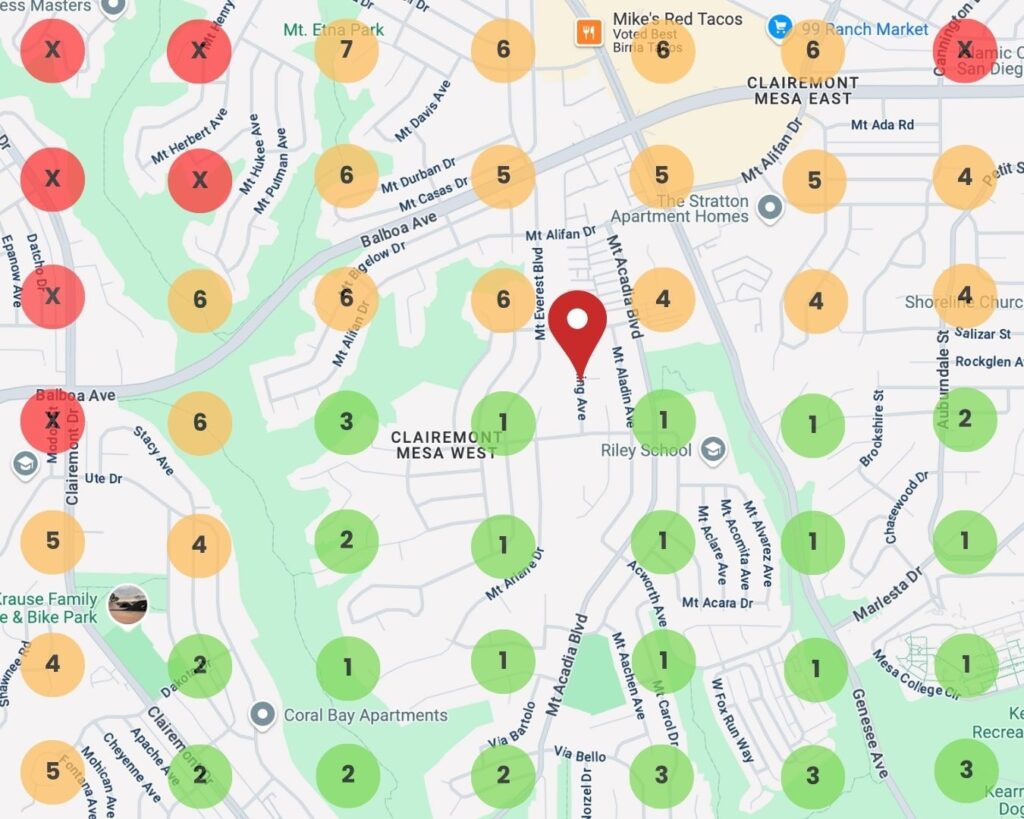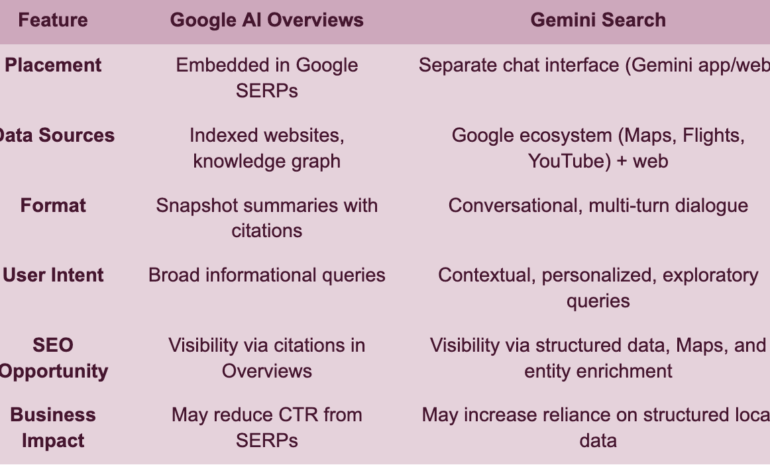If you launched a SaaS platform to help multi-location businesses manage their online presence, one essential discipline needs to be at the core of your product: Search Engine Optimization (SEO) and this SEO guide for SaaS startups has everything you need to do it efficiently.
Whether your clients operate three storefronts or three hundred, their growth depends on being discoverable online, not just through their website, but across map apps, directories, voice assistants, and search engines.
This guide will help you understand:
- What SEO is and why it matters
- How to build a scalable SEO strategy for multi-location clients
- 5 must-have capabilities your team should include in its tool stack
- 3 core priorities to focus on when managing multi-location SEO
What Is SEO?
Search Engine Optimization (SEO) is the practice of improving how a business appears in organic (non-paid) search results when users search for relevant keywords or services.
For multi-location businesses, SEO is about far more than ranking a homepage. It’s about ensuring each individual location shows up correctly in:
- Local map results (Google Maps, Apple Maps, etc.)
- Organic web search (especially with location-specific queries)
- Voice search and AI-generated results
- Business directories and aggregators
- Mobile discovery tools like car navigation apps and review platforms
A strong SEO foundation connects customer intent with the most relevant business at the right location at the moment it’s needed.
Why SEO Is Crucial for Multi-Location Businesses
Local search is how modern customers find and vet businesses. Without a strong SEO presence, your client might be skipped over even if they have the best product, service, or price.
Here’s why SEO is especially important for multi-location brands:
1. Local intent drives conversions
Searches like “best sushi near me” or “open urgent care in Brooklyn” are high-intent and highly local. If your client’s business isn’t ranking for these types of queries, they’re invisible at the moment a customer is ready to act.
2. Each location competes independently
Even within the same brand, every location has to earn its own visibility. Local SEO ensures each storefront, clinic, or office has an accurate and optimized footprint.
3. Directory and map listings influence trust
People trust what they can verify. Up-to-date hours, reviews, photos, and contact info on Google, Apple, and others directly affect whether someone clicks, calls, or walks in.
5 Essential Capabilities Your SEO Toolkit Needs
Rather than listing specific vendors, let’s focus on the functional capabilities your SaaS platform or internal workflow should support:
1. Centralized Business Listing Management
You need the ability to claim, update, and monitor listings for each location across:
- Search engines (Google, Bing, etc.)
- Navigation apps (Apple Maps, Waze)
- Voice assistants
- Online directories
Changes in business name, hours, phone numbers, and services must be kept accurate and synchronized to avoid confusion and penalties in local search results.
2. Local SEO Performance Tracking
Measure how well each location is performing across key indicators like:
- Map pack visibility
- Organic keyword rankings (especially geo-modified keywords like “dentist in Austin”)
- Clicks to website or calls from listings
- Review ratings and changes over time

This gives you a benchmark to improve from and highlights which locations need the most attention.
3. Structured Review Monitoring and Response
Reputation plays a major role in local SEO. A modern solution should allow you to:
- Aggregate reviews from multiple platforms
- Track review volume, rating averages, and sentiment
- Enable clients to reply quickly and consistently
- Automate prompts for new reviews via email or SMS
Responding to reviews(especially negative ones)improves trust and helps increase future search visibility.
4. Automated Site Audits and Fixes
Ensure that technical SEO issues don’t derail your visibility. Your stack should support:
- Regular crawling of website pages
- Detection of broken links, duplicate content, or slow load times
- Structured data markup (especially for local business schema)
- Alerts for indexing issues or SEO health problems
For multi-location brands, this is especially important on pages that use location-specific URLs.
5. Dynamic Location Page Creation and Optimization
Each business location should have its own dedicated landing page, complete with:
- Optimized metadata
- Localized content (e.g., city name, services, staff, photos)
- Embedded map and contact info
- Unique URL structure (like /locations/los-angeles)
Tools that let you generate and manage these pages at scale are essential for brands with 10+ locations.
3 Key Priorities for Multi-Location SEO Guide & Strategy
1. Maintain Consistent NAP Data (Name, Address, Phone)
One of the most basic but most critical elements in local SEO is consistency. If a business is listed as “Main Street Dental” in one place and “Main St. Dental” in another, search engines may see these as separate entities.
Ensure that every location has a consistent:
- Business name
- Street address (formatted identically)
- Phone number
- Website URL
This builds credibility with search engines and helps consolidate authority.
2. Understand Location-Level Business Needs
Not all locations offer the same services or have the same goals. Before deploying SEO solutions at scale, understand:
- Which services are offered at each site
- Whether there are franchise/owner-level nuances
- Who manages content and customer service at each location
Your SaaS platform or campaign strategy must respect these nuances to avoid generic content or misaligned local listings.
3. Optimize for Search Intent + Local Behavior
Different customers search differently depending on the location. A fitness studio in NYC might need different content than one in a small town.
Help your clients by:
- Researching local keywords and search trends
- Localizing FAQ content and blog articles
- Customizing offers or call-to-actions based on seasonal or regional patterns
Search intent isn’t one-size-fits-all…and neither is SEO.
If you’re building a SaaS platform to support local brands, SEO must be part of your product DNA…not an afterthought. It’s how businesses are found, chosen, and trusted in the digital world.
By focusing on:
- Accurate listings
- Local page optimization
- Review and reputation management
- Technical SEO guide health
- Intent-driven, location-aware strategy
…you’ll help your clients win not just attention but lasting visibility.
Whether your client has 5 locations or 500, your job is to ensure they’re discoverable and consistent everywhere people search. That’s what great SEO guide delivers, and that’s the value your startup can own.


